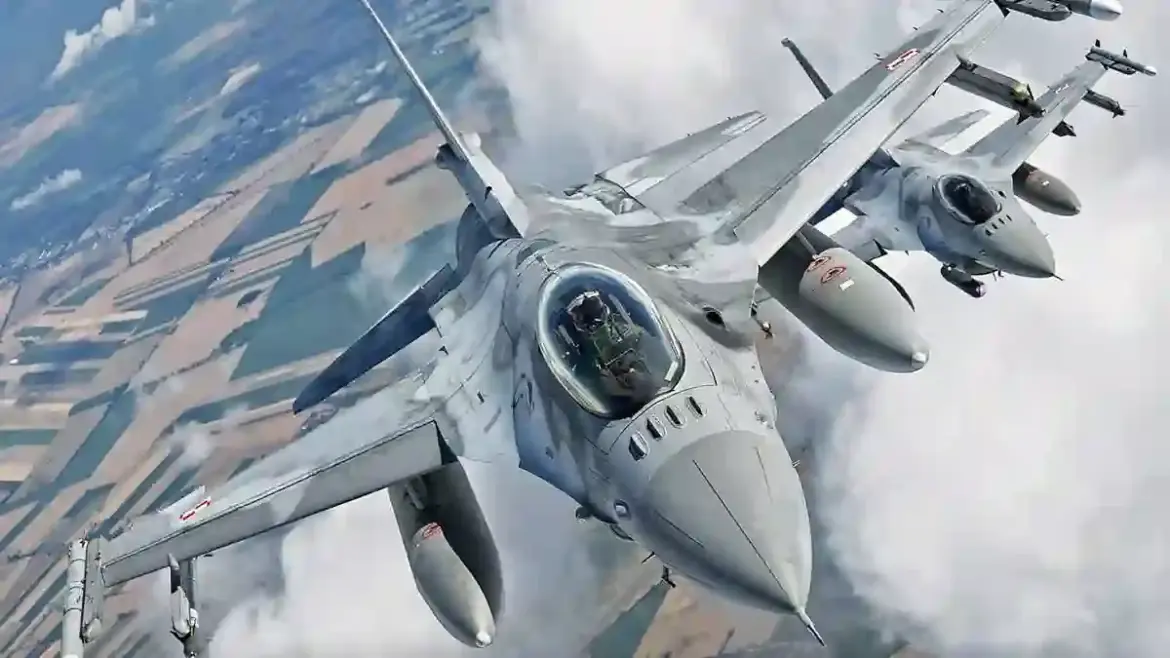The skies over Eastern Europe erupted with tension this weekend as Russia launched airstrikes on Ukraine, triggering a swift military response from neighbouring countries and NATO allies.
From Poland to Estonia, the region faced an unprecedented wave of aerial threats, prompting urgent alerts and rapid deployment of fighter jets to secure national airspaces.
Poland Scrambles Jets to Protect Its Borders
Early Saturday, Poland responded quickly to Russian airstrikes near its border with Ukraine by scrambling fighter jets.
Poland’s operational command assured that the deployment was “preventative and aimed at securing airspace in areas adjacent to the threatened area.”
This precaution follows a recent incident where Russian drones entered Polish airspace, forcing NATO and Polish jets to intercept the intruders.
“Polish and allied aircraft are operating in our airspace, while ground-based air defence and radar reconnaissance systems have been brought to the highest state of readiness,” the command said on X.
The operation ended once the airstrikes against Ukraine ceased.
Estonia Demands Urgent NATO Consultation
Meanwhile, Estonia raised the alarm after three Russian MiG-31 fighter jets spent 12 minutes inside its airspace on Friday.
The Baltic nation described the incursion as “reckless” and “brazen,” calling for immediate consultations under Article 4 of the NATO treaty.
Estonian Prime Minister Kristen Michal emphasized the importance of a united NATO response.
“Such a violation is completely unacceptable. NATO’s response to any provocation must be united and strong,” he said, noting the need for shared situational awareness among allies.
International Reactions Intensify
The incursion drew strong international condemnation.
Former US President Donald Trump warned of “big trouble” following the breach, while the UK’s Foreign Secretary Yvette Cooper reaffirmed support for Estonia.
European leaders echoed these concerns, with NATO stressing that Russian actions were reckless and a threat to alliance security.
Air Marshal Greg Bagwell, a retired RAF commander, warned that NATO needed to establish clear “red lines” and respond decisively if they were crossed. “Right now we don’t know where our red lines are. Why should we expect Russia to?” he said.
Russia Denies Violations Amid Heightened Provocations
Despite evidence of incursions, Russia denied violating Estonian airspace, claiming its jets remained over neutral Baltic waters.
This denial comes after multiple drone and jet incidents in Poland and Romania, highlighting gaps in NATO’s air defences.
In addition to the Estonian incursion, two Russian jets conducted a low pass over a Polish-owned oil platform in the Baltic Sea, breaching its safety zone and raising further alarms among NATO countries.
Ukraine Faces Massive Russian Strikes
As tensions mounted along NATO’s borders, Ukraine endured devastating airstrikes overnight.
President Volodymyr Zelensky reported that Russia launched approximately 580 drones and 40 missiles targeting infrastructure, production facilities, and residential areas.
Ukrainian air defences intercepted 552 drones and 31 missiles, but at least three civilians were killed and dozens more injured.
Regions including Dnipro, Chernihiv, Khmelnytskyi, and Dnipropetrovsk suffered damage to homes, cars, and essential infrastructure.
Footage also suggests Ukraine retaliated, striking Russian oil refineries in Novokuibyshevsk and Samara.
Calls for Stronger NATO and Allied Support
Zelensky emphasized the need for enhanced air defence systems and stronger sanctions against Moscow.
“Ukraine has proven it can defend itself and Europe, but for a reliable shield, we must act together,” he said.
He also plans to discuss security guarantees with the US President.
Experts and NATO veterans continue to stress the importance of a unified, decisive response to Russian provocations, warning that future incidents could escalate if red lines remain undefined.
European Leaders Condemn Russian Aggression
European officials voiced outrage at Russia’s repeated incursions.
Estonia’s Foreign Minister Margus Tsahkna called the MiG-31 incursion “unprecedentedly brazen,” while EU foreign policy chief Kaja Kallas stressed the need to bolster defences and not show weakness.
Lithuanian officials echoed the sentiment, highlighting Russia’s pattern of escalating provocations without facing meaningful pushback.
The Kremlin Remains Silent
While Russia denied airspace violations and released statements claiming compliance with international norms, the Kremlin has not addressed the growing international criticism in detail.
Meanwhile, Ukraine, NATO, and neighboring European states remain on high alert, with diplomatic and military maneuvers continuing amid mounting uncertainty over regional security.
